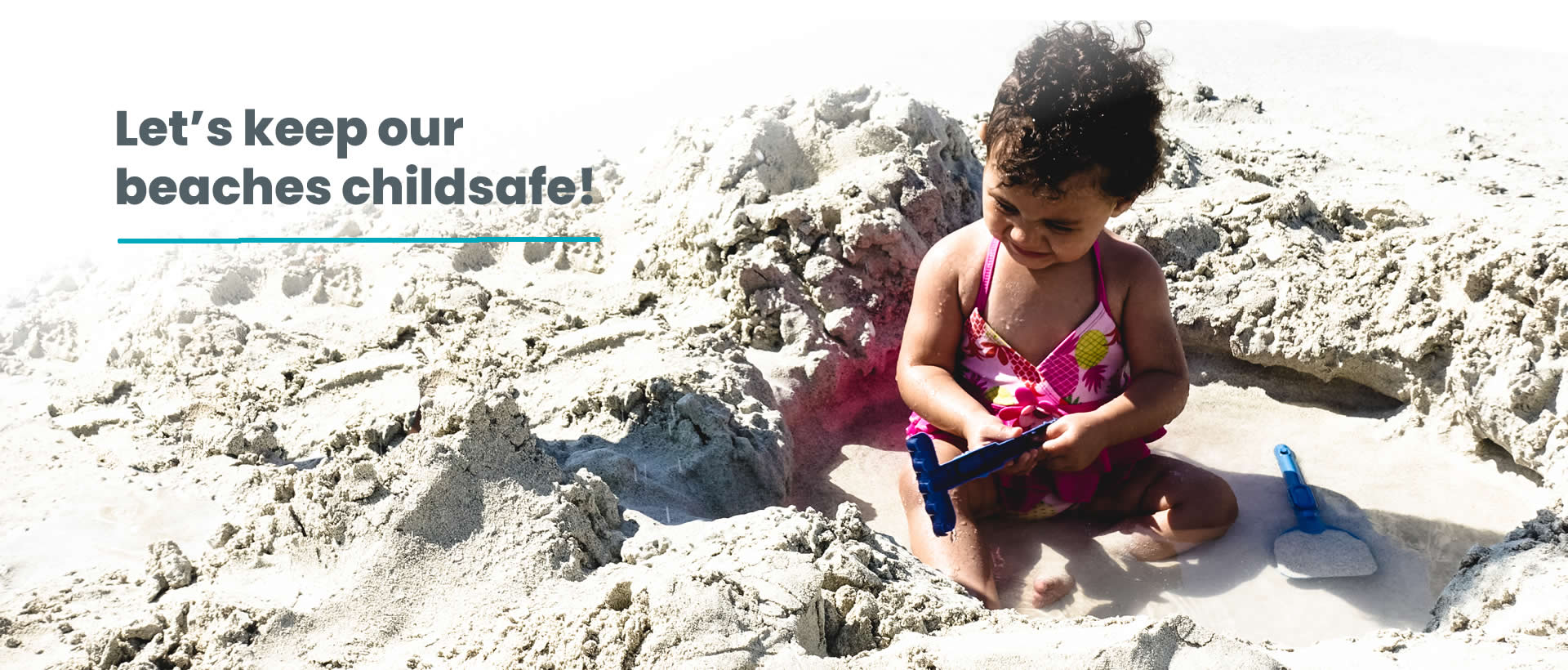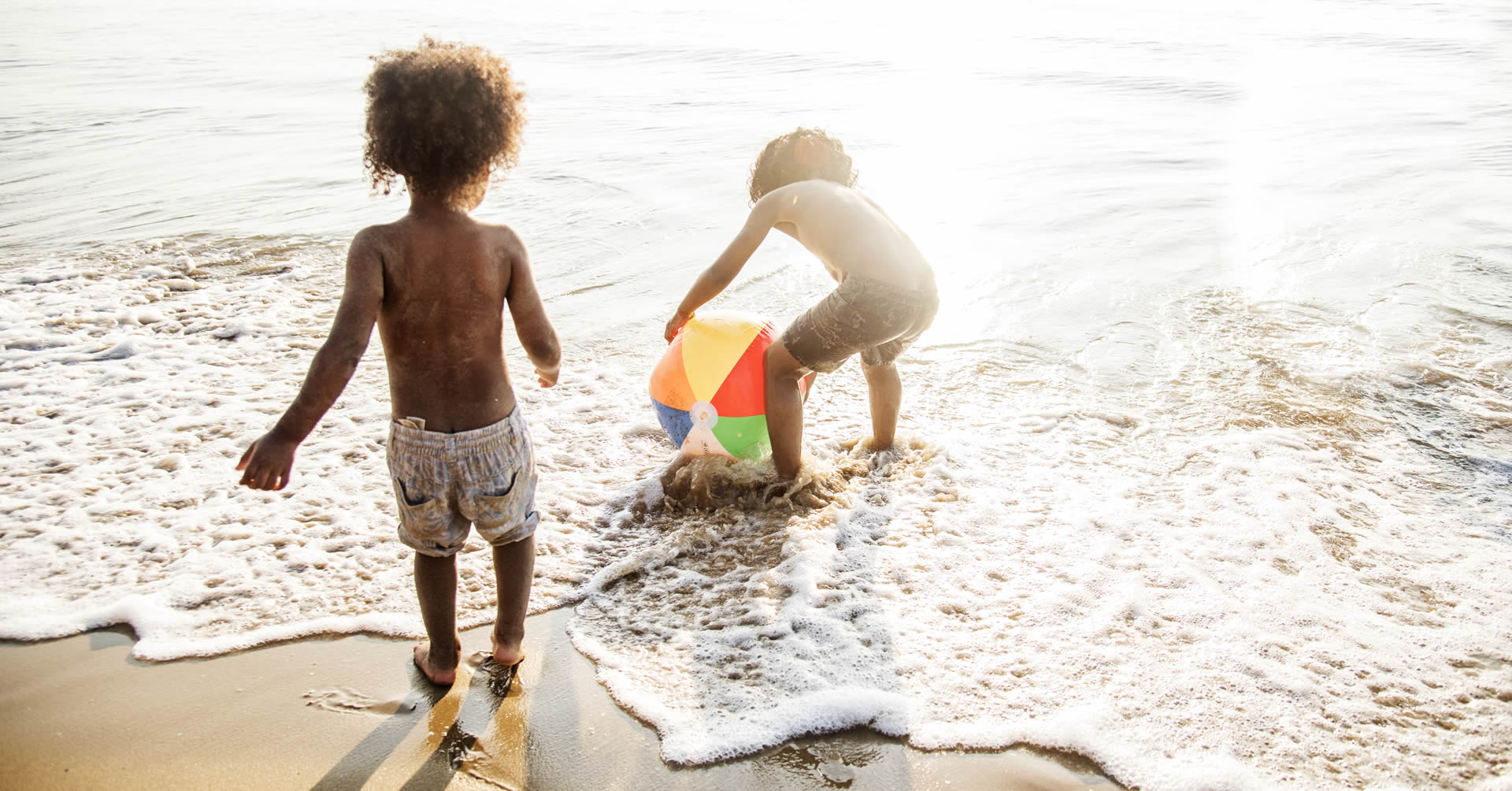ChildSafe Beaches
Our beaches and surrounding areas should be fun, happy places for children to visit
Sun, water and crowds can be a dangerous combination for unsupervised children. Apart from the risk of drowning, sunburn and dehydration, there are other, darker dangers.
ChildSafe Beaches Project
In partnership with with the Childhood Foundation and Friends International, WESSA has introduced the award winning ChildSafe Movement to South African shores.
Through the ChildSafe Beaches Awareness campaign, we highlight some of the dangers to little ones, and offer tips to parents and other beach goers to help safeguard children.
Over the busy festive season in and around popular coastal tourism sites, trained Blue Flag beach stewards are on hand to assist in protecting children.
To learn more about our ChildSafe Programme,
contact Lindokuhle Mkhize, Sustainable Tourism Project Manager.
Email: Lindokuhle.Mkhize@wessa.co.za

7 Tips to protect children
Children need supervision to remain safe
Unsupervised children face multiple risks if left alone or without family protection and guidance. Drowning or other accidents can occur, as can getting lost and exposure to ill-intentioned strangers. There is also the risk of dehydration, sunstroke and sunburn.
While visiting and enjoying the beach, it’s essential for parents or caregivers to communicate with children some basic safety instructions and to always ensure they are supervised by responsible adults.’
Protect children from the sun and let them have access to water. Make sure they know what to do if they get lost, such as finding a responsible adult to help or, if old enough, to memorise their caregiver’s number.
If there are Blue Flag Beach Stewards (wearing blue T shirts) on duty, point them out to your children – they are there to help!
Don't give to begging children
When you give money, food or gifts to begging children you encourage them to continue begging on the streets or beaches and stay out of school. Sometimes children beg on behalf of adults, so by supporting them you are perpetuating their exploitation.
Instead of giving to street children, rather donate to organisations that support vulnerable children, youth and families. uMthombo Street Children, Surfers not Street Children, Child Welfare Durban & District, Tennyson House and I Care are organizations in Durban that would really appreciate your donation!
Don't drink or use drugs around children
Drinking on the beach is illegal! People using alcohol and drugs around children are less vigilant, posing serious safety risks, especially on and around the beach. Swimming or playing water sports under the influence of alcohol and drugs is very dangerous and can be deadly. People can also behave badly, even violently, which creates poor role models for children.
Do not drink or take drugs at the beach. If you witness a situation where a child or group of children is attended by intoxicated adults or if children themselves seem intoxicated, keep a close eye on the situation and report to the nearest lifeguard or police station.
End violence against children
Children are still too often victims of physical, sexual and emotional violence, which includes beating, hitting, pinching, insulting, bullying, threatening or humiliating them.
Physical abuse is sometimes used as punishment and that can have lifelong consequences on the health and development of children. Sexual violence against children includes forced, pressured, coerced, unwanted or unlawful sexual activity with a girl or boy under 18 years of age, or attempts to do this.
Please report suspect cases of abuse. See the Contact Information at the bottom of the page.
Sex with children is a crime – report sex tourism
Sex tourism is a devastating reality, perpetrated by both domestic and regional travelers. It happens in bars, hotels, vacation rentals, entertainment venues and through online platforms and the social medias.
While on holiday, you may be approached and offered sex with children. When visiting places of adult entertainment, you may also interact with under aged boys and girls.
Please report suspect cases of abuse. See the Contact Information at the bottom of the page.
Report child labour
Some children sell goods on or around the beach, along roads and other busy sites. Others may be employed in beach restaurants, hotels, bars and entertainment venues.
During the holidays, children aged 15 – 17 (under 18) can work as long as it’s not hazardous or harmful to their well-being. Children under the age of 15 can work in performing arts if they have a permit from the Department of Labour.
Please report suspect cases of abuse. See the Contact Information at the bottom of the page.
Protect the environment
When visiting the beach, you want to enjoy the beautiful environment and so do children and communities living nearby. As our collective future is at risk from climate change, pollution and other negative human-made impacts, think how you can take positive steps to protect this environment so that current and future generations will have beautiful beaches to enjoy.
While visiting the beach, be mindful of your actions and how they impact the environment. Don’t litter – use the bins provided or take your waste with if there are no bins. Littering does not create jobs!
Report water pollution complaints and emergencies. eThekwini Municipality’s Pollution and Environment department can be contacted 080 13 13 013 or SMS: 083 707 301.
We are all responsible for protecting children. Suspected cases of abuse, neglect or exploitation can be reported to:
Childline: 0800 055 555
Child Welfare Durban & District: 031 3129313
SA Police 10111





